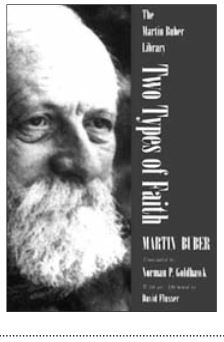Dialogical Theology Moored in Buber’s Dialogical Philosophy
DOI:
https://doi.org/10.25786/cjbk.v0i01-02.563Abstract
A growing interreligious theology is a challenge
for any confessional theology. In confessional
theology, one reflects first of all upon the own
tradition and only in a second step upon the relation
with other religions. The interreligious theologian
does not bracket the own particular standpoint,
but her goal is to come to an understanding
of the multi-perspectival approach of the Ultimate
Reality. Thus, interreligious theology brings a
major shift in theology: its method is dialogical
and its basis is concrete dialogue between religions.
Instead of rather exclusively focusing upon the
own as in a religion-specific theology, its scope is
global and concerns the faith of all.
The first part of this article describes dialogical
theology as a game changer, a paradigm shift. The
second part shows how Buber’s dialogical philosophy
as it comes to the fore in I and Thou inspires
this new theology. 2
Classical theology worked frequently with the
superiority of the own and the inferiority of other
religions. If one did not opt for an exclusivist position,
one admitted in an inclusivist standpoint
stating that some truth is present in the other religions,
but the all truth would lie in the own religion.
3 Dialogical theology, on the contrary, takes
the religious other serious as equal partner in the
interreligious dialogue. It is unescapably transformational,
because of the widening of the horizon,
which allows lively contact with religious others
that have their own, genuine access to the Ultimate
Reality. In the course of the interreligious
meeting, the prejudices of a person who engages
in deep listening to and serious dialogue with religious
others become clear. This leads to a revision
of previous standpoints and eventually to a reimagining
of the own tradition in confrontation with
the wisdom of other traditions. One does not
leave a dialogue in the same way one entered into
it. The encounter with religious others may lead to
modifications or corrections of the own viewpoint,
to the adoption of multiple belonging and
participation or – less radically – to an enrichment
of the own position. It may also lead to an abandonment
of one’s original religious position and
the adoption and embracement of another, more
fitting position. To take seriously different values
and viewpoints of the dialogue partner as relevant
for one’s own understanding is part and parcel of
any creative interreligious dialogue. Buddhists, for
instance, are challenged by Jews who insist that
contact with the transcendent implies the realization
of social justice. Jews in turn are challenged
by Buddhists who deem that tranquility of mind
through non-attachment is necessary as part of
the experience of the transcendent reality of nirvana.
Real dialogue invites the participants to see
their mutual different experiences of the Ultimate
Reality as challenging and eventually to revise
central theological categories. Jews have access to
the Higher Reality through justice, Buddhist
through wisdom. Can wisdom without justice
and can justice really exist without mindfulness?


 Alle Inhalte dieser Webseite und der Zeitschrift sind (sofern nicht anders angegeben) lizenziert mit einer
Alle Inhalte dieser Webseite und der Zeitschrift sind (sofern nicht anders angegeben) lizenziert mit einer 